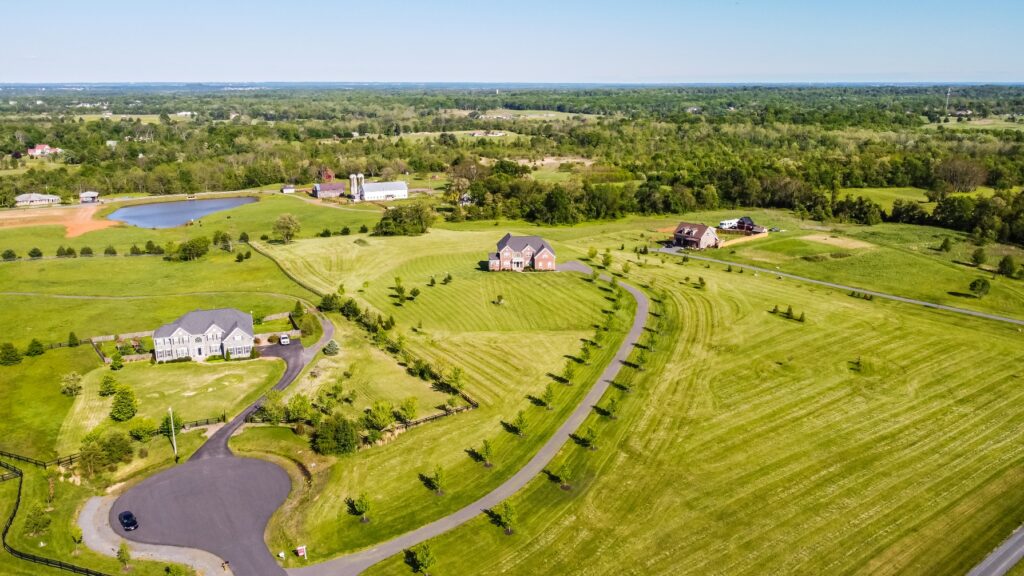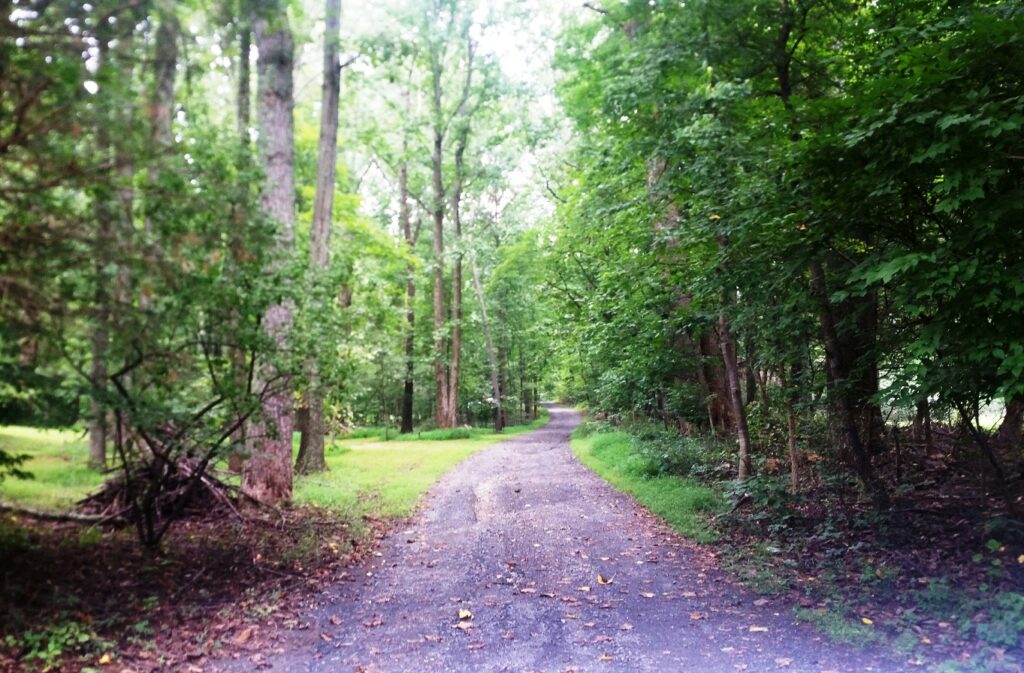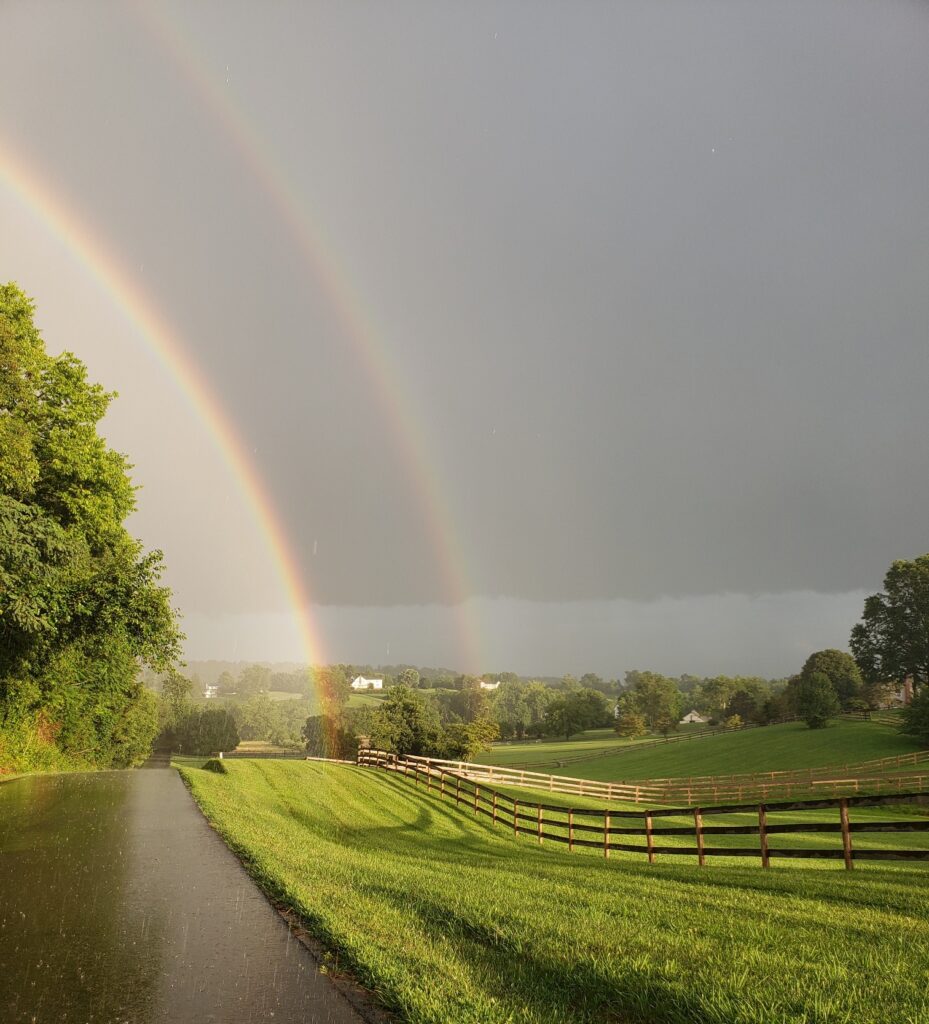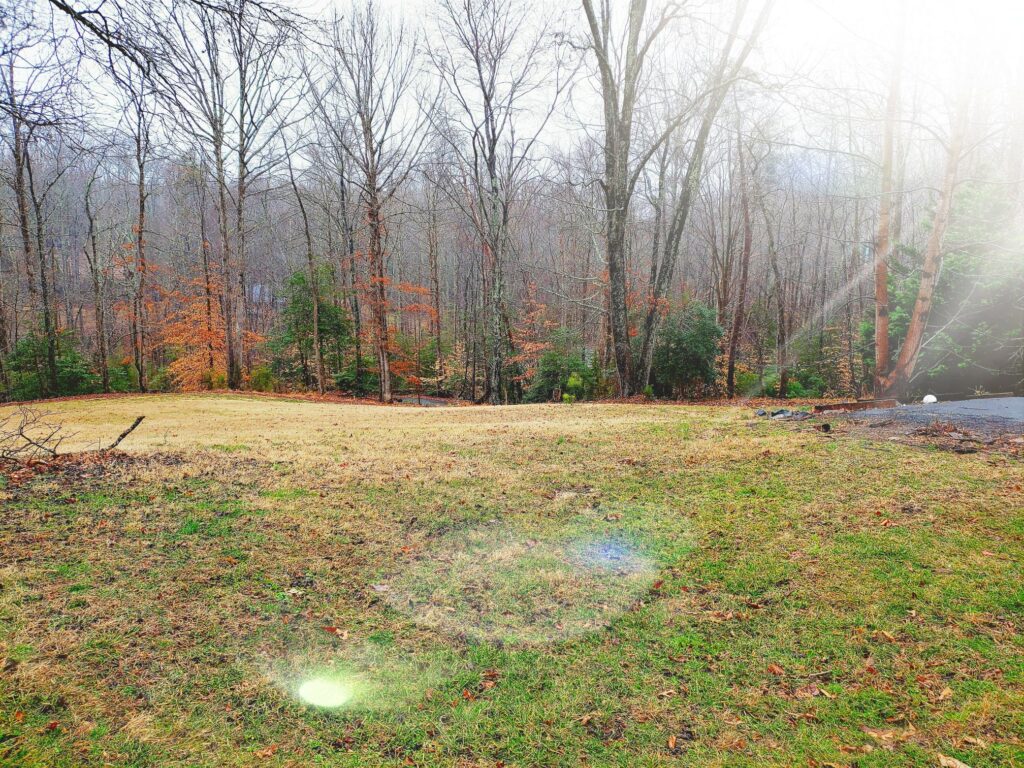
Buying Your View and Privacy
Log in to any neighborhood social media site or group and you are bound to hear often repeated themes. In high density neighborhoods in Bristow, Virginia, medium to large single family homes are squished into fifth to quarter acre lots. This is prevalent in Gainesville and Haymarket as well. Privacy and views are sought after by virtually every buyer. Builders know this well and sell the most private lots, which are usually those with the best views, for extremely high premiums on top of already inflated home prices in the area.
Protected views and privacy are usually an illusion on such small lots. When more development comes into play, be it more homes, places of worship, transmission towers for power lines or data centers, cries about the encroachment to privacy and view are immediate and heated. People get used to what they see out of their windows every day. Few actually think about what it would mean to have legitimate privacy and views. It means owning the land around you.
When home buyers are faced with what their budget will allow, most are faced with a new house on a postage stamp lot closer in or buying an older, likely outdated home on acreage farther out. And if a home buyer really wants a view and privacy, they will likely be looking at the latter. Only then can a view or privacy be considered protected. You may only need to buy three to five acres. Maybe you want ten. You don’t have to buy hundreds of acres for the type of privacy most suburbanites desire.

One need only watch the hit series Yellowstone to see the dramatization of the value of acreage. There is a limited supply of land and our growing population demands more of it. In higher density housing areas like where I live in Bristow, our overall society’s near complete reliance on a digital way of life has brought data centers to the forefront. Nobody likes the look of them. No one wants them in their view every day. It is doubtful the world would change its ways overnight and lessen their dependence on things like Ring doorbells, cell phones, streaming devices, etc.
When faced with data centers needed to continue to serve growing digital demand, the cries to the potential impact to those higher density housing areas is every bit legitimate as it is pointless. No matter the objections to to them, the reality is that home owners don’t want things like data centers in their back yard. Who can argue with that? Sadly, when you don’t own the land in question for the such development, citizens only have the power to protest. Politicians carefully craft statements and reschedule meetings for rezoning that makes citizens feel heard, but those elected officials have to consider the larger population when making decisions. Hundreds of protesting citizens is impressive, but in a county of nearly a half-million people may be acceptable collateral damage to elected officials looking to the benefits to the larger population. It is frustrating to realize you have no control as a home owner to what is built around you.

If you truly want a shot at protected buffers, privacy and views, buying acreage is truly the only way to achieve that goal. It may mean making the sparkle of newly designed kitchens and bathrooms of modern floor plans the lowest priority. It may mean living in more rural areas and absorbing larger commutes or even dealing with satellite internet. However, if you truly want as much control over your immediate environment as possible, buying land is the only way to have it.
There is a very important footnote here and that is the government’s power of eminent domain. The government has a right to seize property by force, giving fair market value to the owner, if needed for the greater good. Governments could take a subdivision from many home owners or a farm with hundreds of acres from one land owner. A quick Google search on eminent domain cases in the United States can show you why governments use this power. Many believe the use of eminent domain is being stretched beyond its original intent. What truly serves the greater good?
While it unlikely that the vast majority of land owners will ever have to deal with eminent domain, it could happen. What that land owner is left with is money to buy elsewhere or add to their wealth. When home owners in high density areas have no control over the land around their homes, they get zero compensation for whatever development takes place that impacts their daily life.

More and more I see buyers pushing out to under developed areas like Frederick, Clarke and Shenandoah Counties. Fauqier, Loudoun, Stafford and have opportunities depending on budget and desired location. And it is far more often that I find buyers wanting more than a quarter acre lot or neighborhoods free of HOAs. If you value privacy, having to apply for a garden, or what color you paint your front door probably doesn’t line up with your home ownership priorities. Buying properties with more land require long term vision, particularly on limited budgets, to transform older homes over time. One thing is certain, owning your view and privacy are priceless.


Chris Ann Cleland
Associate Broker
VA License #0225089470
Long & Foster Real Estate
Call or Text: 703-402-0037
Email: ChrisAnn@LNF.com
www.UncompromisingValues.com
The opinions expressed in this blog are those of Chris Ann Cleland, not Long & Foster. All content is written by Chris Ann Cleland without the aid of artificial intelligence.
